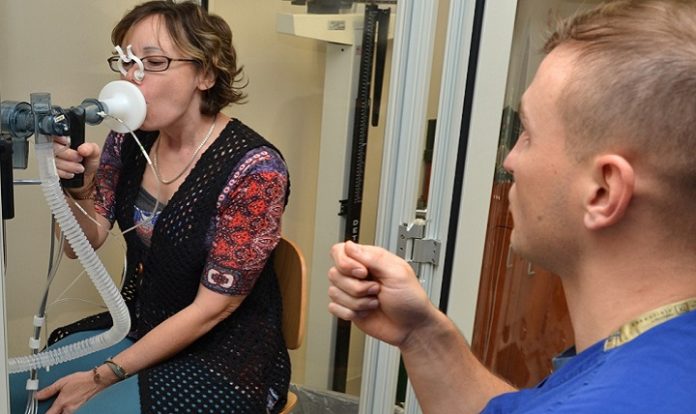Testosterone replacement therapy may slow disease progression of chronic obstructive pulmonary disease
Testosterone replacement therapy may slow disease progression of chronic obstructive pulmonary disease. Researchers from the University of Texas Medical Branch at Galveston reported this in a paper published in the journal Chronic Respiratory Disease.
Chronic obstructive pulmonary disease, or COPD, is predicted by the World Health Organization to be the third-leading cause of illness and death internationally by 2030. For India the problem is particularly acute. India has 18% of the world’s population but 32% of the global burden of respiratory diseases.
Respiratory disease burden in India is second only to that of ischaemic heart disease found a state level analysis of the Global Burden of Disease data. Low testosterone is common in men with COPD and may worsen their condition. Men with COPD have shortness of breath and often take steroid-based medications for an extended time, both of which increase their risk of low testosterone.
“Previous studies have suggested that testosterone replacement therapy may have a positive effect on lung function in men with COPD,” said Jacques Baillargeon, UTMB professor in preventive medicine and community health. “However, we are the first to conduct a large scale nationally representative study on this association.”
For India the problem is particularly acute. India has 18% of the world’s population but 32% of the global burden of respiratory diseases.
The goal of the study was to find out whether testosterone replacement therapy reduced the risk of respiratory hospitalizations in middle-aged and older men with COPD.
Using the Clinformatics Data Mart, a database of one of the largest commercially insured populations in the U.S., Baillargeon and colleagues examined data of 450 men aged 40 to 63 with COPD who began testosterone replacement therapy between 2005 and 2014. They also used the national Medicare database to study data from 253 men with COPD aged 66 and older who initiated testosterone replacement therapy between 2008 and 2013.
“We found that testosterone users had a greater decrease in respiratory hospitalizations compared with non-users. Specifically, middle-aged testosterone replacement therapy users had a 4.2 percent greater decrease in respiratory hospitalizations compared with non-users and older testosterone replacement therapy users had a 9.1 percent greater decrease in respiratory hospitalizations compared with non-users,” said Baillargeon.



Medications that physicians prescribe to control blood pressure, depression, anxiety, and an enlarged prostate can result in ED. Lifestyle choices such as smoking, obesity, lack of exercise also contribute to ED. Finally, psychologic factors such as stress, anxiety, and depression can worsen or lead to ED as well.
Hello, its pleasant piece of writing regarding media print,
we all know media is a fantastic source of data.
Comments are closed.